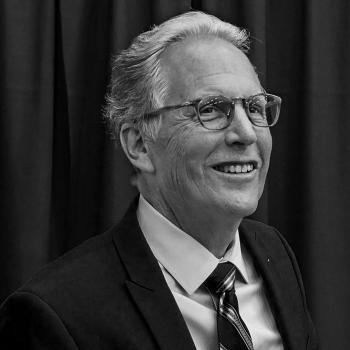
ASU remembers
Thomas Dishion
Professor of Psychology

June 1, 2018
Thomas Dishion died June 1, 2018. He earned his Bachelor of Art in philosophy at the University of California, Santa Barbara before moving to the University of Oregon for his master’s and doctoral degrees in clinical psychology. Dishion started his academic career at Oregon in 1988 and moved to ASU in 2011. He was named an ASU Regents’ Professor of psychology in February. He was a central figure advancing the field of prevention science, which brings techniques or interventions backed by research into the community. At Oregon, he founded the Child and Family Center, and at ASU, he re-envisioned prevention science by founding and directing the REACH Institute in the Department of Psychology. Dishion studied how deviant behavior can be reinforced among adolescent peers and can lead to substance abuse, violence and delinquency. In 1999, he published a paper in American Psychologist that examined how peer reinforcement of deviant behavior can occur in group therapy, thereby causing clinical interventions designed to help teenagers to instead backfire. This paper influenced federal guidelines for group therapy interventions for adolescents. Sharlene Wolchik, professor and co-director of the REACH Institute, described Dishion as passionately believing that basic science research should form the foundation for interventions for at-risk youth. This conviction led Dishion to also focus on the parent-child relationship, specifically how interactions between a parent and child could unintentionally reinforce unhealthy behaviors that can then lead to problem behaviors in the future. To break the cycle of reinforcing unhealthy behaviors — in parent or child — Dishion took his research findings on group dynamics in adolescents beyond the university walls and developed the Family Check-Up program. The program targets at-risk families with young children and teaches parenting skills that improve the interactions between parents and children. These simple parenting skills have wide-ranging effects and protect children against substance abuse and a range of mental health problems years later in life. “The Family Check-Up represents a leap forward from behavior problem treatment to the prevention of the problem behaviors, in a context that affords universal implementation,” said Kenneth Dodge, professor of psychology and neuroscience at Duke University. “This approach has the potential to move the needle in population health, which is rare for psychological interventions.” Dishion’s efforts developing and implementing the Family Check-Up program in the community earned him the 2010 Prevention Science Award from the Society for Prevention Science. During his 30-year career, he published over 300 papers in peer-reviewed journals, was awarded more than $100 million in federal research grants and trained myriad scientists. His papers were heavily cited, which means his work widely influenced other scientists. “He introduced game-changing questions, theory, and methods on a broad range of topics such as bullying, the developmental course of antisocial behavior, and the neurobiology of young adult romantic relationships,” said Nancy Gonzales, incoming dean of natural sciences, Foundation Professor of psychology and co-director of the REACH Institute. “For this work, Tom received the 2019 Urie Bronfenbrenner Award for Lifetime Contribution to Developmental Psychology in the Service of Science and Society.” The Bronfenbrenner award is presented by the Developmental Psychology division of the American Psychological Association to scientists whose research has advanced developmental psychology but who also apply their research efforts to society. Dishion’s award will be presented posthumously at the 2019 annual meeting of the association. “Tom was a special man in so many ways,” said Steven Neuberg, Foundation Professor and chair of the Department of Psychology. “As a scholar, his scientific contributions were remarkable. As a contributor to our broader society, his creation of empirically sound, evidence-based interventions to enhance the well-being of at-risk children, adolescents, and families is nothing less than inspiring. And he was a good friend to so many. We will greatly miss him.” Dishion strongly believed universities should be actively involved in the community, and his Family Check-Up program is used widely in the U.S. and also internationally. Through his efforts to offer research-based interventions to society, he exemplified the values and goals of the New American University. Dishion is survived by his wife, Thao Ha, an assistant professor in the Department of Psychology, three children and six grandchildren. A celebration of Dishion’s life is being planned at ASU at the beginning of the fall semester. (Source: ASU Insight)